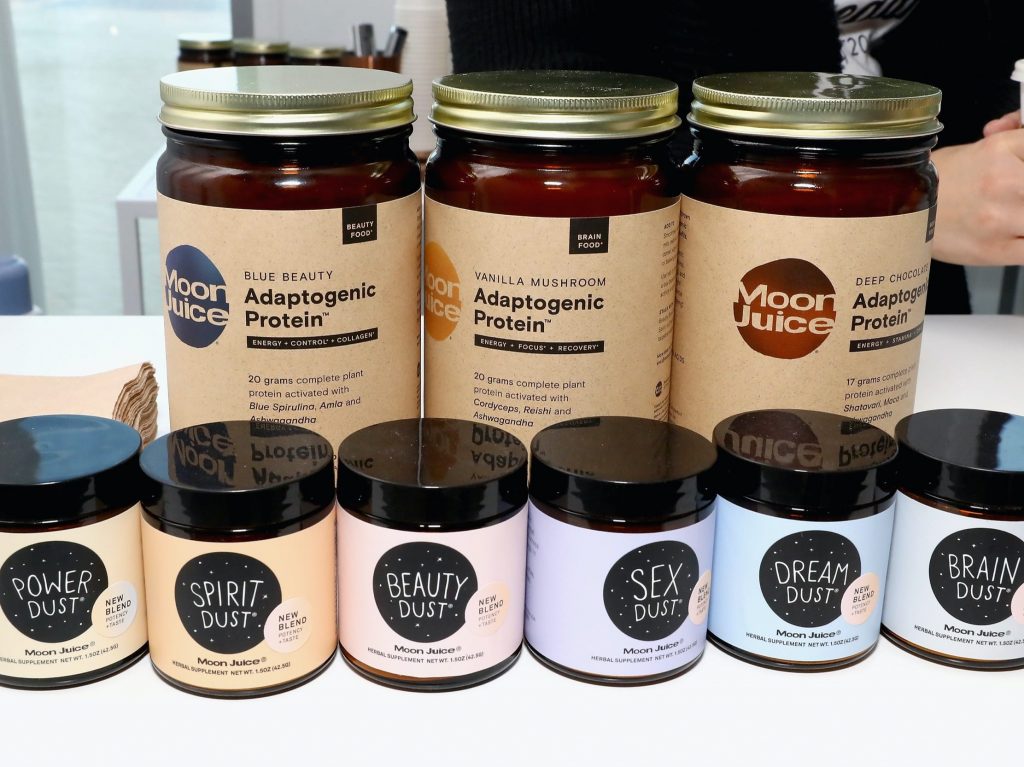Moon Juice, the Los Angeles juice shop turned wellness brand, talks a big game about composting. "We invest in a future filled with more composting facilities than garbage dumps," its website says. Much of the cups and silverware at its two juice shops are compostable, and, for a while, its flagship store in Venice offered customers a compost bin, according to Sea Sloat, who worked at the shop until March 2020.
There's just one snag: Moon Juice didn't pay for a composting service. Instead, store employees would toss the "compost" into a garbage bin out back, according to three former employees who worked at Moon Juice as recently as last year. These days, the Venice store has no compost bin at all, a current employee said.
"It's like a microcosm of all these other problems," Sloat said. "Look at how pure and how wholesome and how sustainable we are and all these things. But actually, it's just all going in the trash."
Moon Juice, which didn't return requests for comment, advertises itself as a virtuous wellness company whose products — which include $38 jars of Sex Dust and $30 bags of activated cashews — are of the highest quality and sourced sustainably and transparently. Its "trained alchemists" can blend you a smoothie spiked with Brain Dust, or any other dust of your choosing, at one of its two Los Angeles stores. When the company expanded into the beauty sphere in 2018, products like its Cosmic Cream moisturizer and Acid Potion exfoliator were touted as "magic potions" and "clean" alternatives to mainstream beauty brands. In January, Moon Juice secured $7 million in Series C funding from True Beauty Ventures, a firm that invests in beauty startups.
At the helm of Moon Juice is its founder, Amanda Chantal Bacon, who starts her day with a 23-minute breath set, has an at-home infrared sauna, and is second only to Goop's Gwyneth Paltrow in the world of wealthy, white wellness goddesses.
But some former employees say Moon Juice's practices have long been in contrast with its do-good ethos, leaving staffers struggling with what they see as blatant hypocrisy. They say Moon Juice tried to present its shop employees, referred to as trained alchemists, as having some sort of expertise about supplements, despite inadequate training and near-minimum-wage pay. Some questioned Moon Juice's lack of transparency about the sourcing of its ingredients. And despite Moon Juice's proclamations of inclusivity, some former employees said they were subject to racist comments from colleagues that management failed to address. On one occasion, an employee emailed Bacon about a store manager who she said made racist comments. After an internal investigation, Moon Juice management told the employee they were "not able to substantiate your allegations." The manager was later promoted.
"People buy into Moon Juice because they believe in the purity of it, the equity of it, the environmental stewardship of it," Sloat said. "I think people want to pay a premium for good stuff because they think it's coming from a good place."
But she says when you look harder, the facade crumbles. "It makes me angry," she said, "that they're able to make money off of misleading people."

